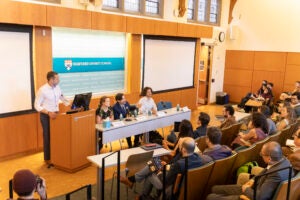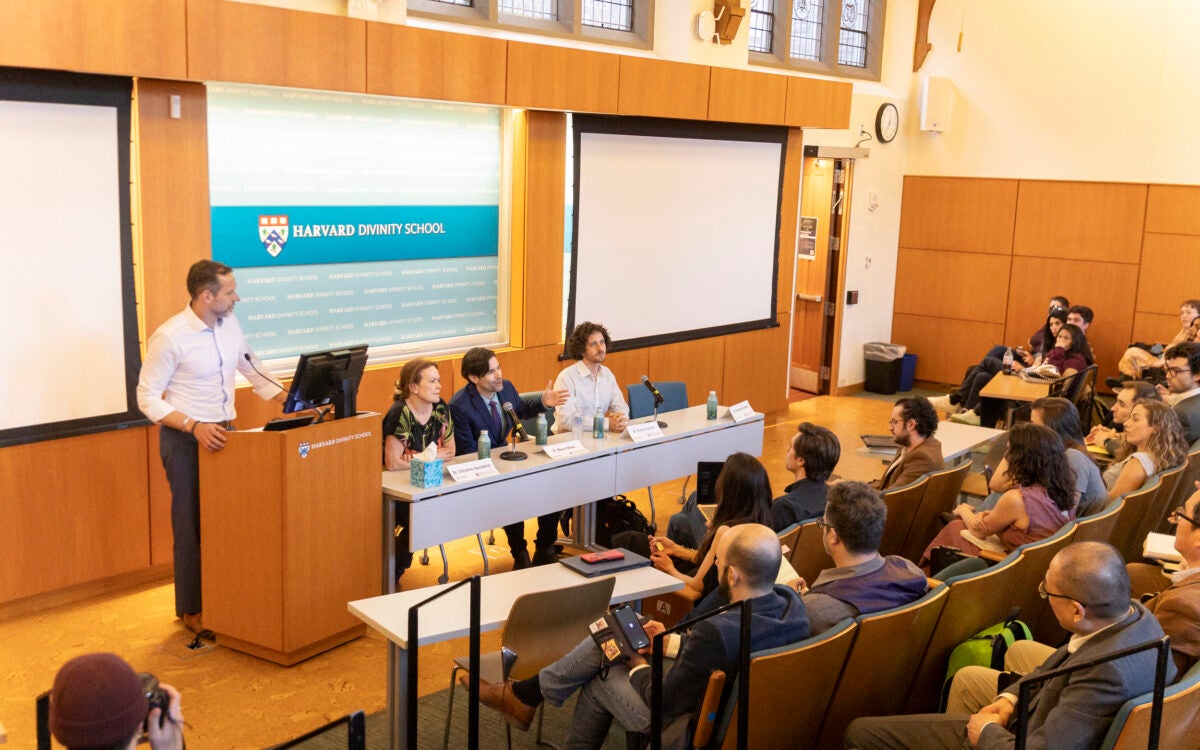Should scientists experiment with highly contagious pathogens?
The current controversy about the wisdom of conducting experiments with pathogens that are genetically engineered to be more contagious presents a unique opportunity to set an effective precedent on the issue of biological experiments that carry large-scale risks, according to a Foreign Affairs article co-authored by Harvard T.H. Chan School of Public Health epidemiologist Marc Lipsitch.
In the August 31, 2015 article, Lipsitch, professor of epidemiology and director of the Center for Communicable Disease Dynamics at Harvard Chan School, and co-author David A. Relman of Stanford University noted that the U.S. government suspended funding last October for so-called “gain-of-function” research on avian flu. In such research, more contagious forms of the highly pathogenic flu would be created in the laboratory so that scientists could learn more about the genetics required for a flu strain to cause a pandemic.
The authors have been outspoken critics of such research, arguing that it poses great risks—most notably the possibility of a lab accident or deliberate misuse of extremely contagious and virulent pathogens, and that the benefits of such research could be achieved by alternative, safer means. That’s why the government imposed its funding moratorium, which is coinciding with an international deliberative process that aims to assess the risks and benefits of the research. The authors argue that the risks of future biological experiments, involving new techniques of genetic modification in which a laboratory accident could harm whole human, animal or plant populations, will be even more controversial.




